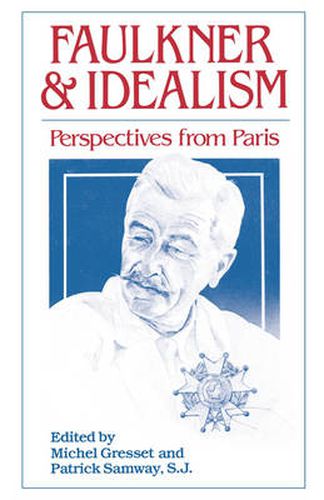Readings Newsletter
Become a Readings Member to make your shopping experience even easier.
Sign in or sign up for free!
You’re not far away from qualifying for FREE standard shipping within Australia
You’ve qualified for FREE standard shipping within Australia
The cart is loading…






This title is printed to order. This book may have been self-published. If so, we cannot guarantee the quality of the content. In the main most books will have gone through the editing process however some may not. We therefore suggest that you be aware of this before ordering this book. If in doubt check either the author or publisher’s details as we are unable to accept any returns unless they are faulty. Please contact us if you have any questions.
The essays in this volume are indicative of the scope of international scholarship concerning the works of William Faulkner. They reflect particularly the distinctive and somewhat varying views that American and European scholars have of the Nobel Prize author. The nine papers included, a representative sampling of those delivered at the First International Colloquium on William Faulkner, articulate the relationship between Faulkner and idealism. All appear in English, either having been presented in English or translated so that they will be more accessible to American readers. The conference was convened in March 1980 at the University of Paris, and the scholars from both sides of the Atlantic came to realize not only that there were respective attitudes toward Faulkner’s fiction but also that there was no single concept of idealism by which they might gauge Faulkner. Thus, as Gresset and Samway state in their introduction, The colloquium was no demonstration of a theorem already proved, but rather a chance to pose a theoretical problem and then for variables that might be part of the understanding of the nature of the problem.
For instance, the paper presented by Joseph Blotner, the keynote speaker, finds that Faulkner’s idealism is based on a conception of things as they are or as one would wish them to be. Andre Bleikasten offers another view of idealism, one stressing ideology. Writing, he says, can neither subvert nor dismiss ideology. Thus the nine essays bear witness to a spectrum of views and approaches one can take in using only recent critical theory and a close reading of Faulkner’s texts.
$9.00 standard shipping within Australia
FREE standard shipping within Australia for orders over $100.00
Express & International shipping calculated at checkout
This title is printed to order. This book may have been self-published. If so, we cannot guarantee the quality of the content. In the main most books will have gone through the editing process however some may not. We therefore suggest that you be aware of this before ordering this book. If in doubt check either the author or publisher’s details as we are unable to accept any returns unless they are faulty. Please contact us if you have any questions.
The essays in this volume are indicative of the scope of international scholarship concerning the works of William Faulkner. They reflect particularly the distinctive and somewhat varying views that American and European scholars have of the Nobel Prize author. The nine papers included, a representative sampling of those delivered at the First International Colloquium on William Faulkner, articulate the relationship between Faulkner and idealism. All appear in English, either having been presented in English or translated so that they will be more accessible to American readers. The conference was convened in March 1980 at the University of Paris, and the scholars from both sides of the Atlantic came to realize not only that there were respective attitudes toward Faulkner’s fiction but also that there was no single concept of idealism by which they might gauge Faulkner. Thus, as Gresset and Samway state in their introduction, The colloquium was no demonstration of a theorem already proved, but rather a chance to pose a theoretical problem and then for variables that might be part of the understanding of the nature of the problem.
For instance, the paper presented by Joseph Blotner, the keynote speaker, finds that Faulkner’s idealism is based on a conception of things as they are or as one would wish them to be. Andre Bleikasten offers another view of idealism, one stressing ideology. Writing, he says, can neither subvert nor dismiss ideology. Thus the nine essays bear witness to a spectrum of views and approaches one can take in using only recent critical theory and a close reading of Faulkner’s texts.